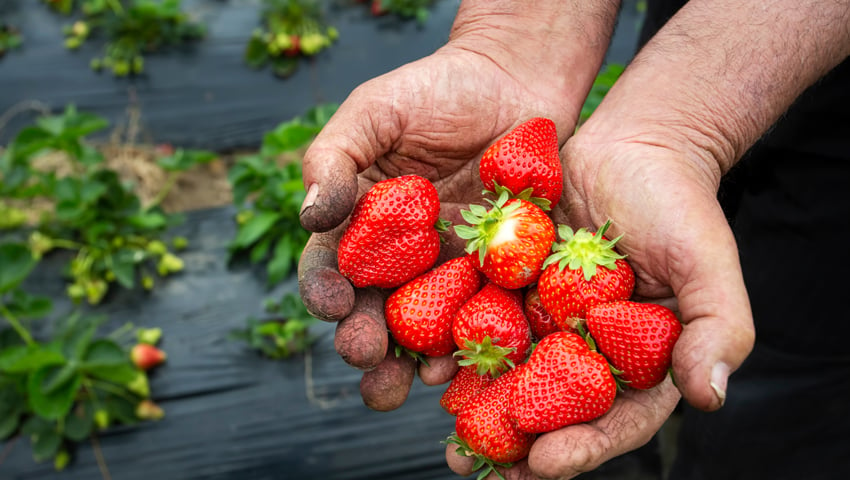A package of measures, that Defra says will provide certainty and stability for farmers and growers in the UK’s horticulture and poultry sectors, has been announced by the UK Government.
Defra said, “Underlining the government’s commitment to the horticultural and poultry sectors, the Seasonal Worker visa route has been confirmed for 2025, with a total of 43,000 Seasonal Worker visas available for horticulture and 2,000 for poultry next year.
“This will provide certainty and will help the sector secure the labour and skills needed to bring high quality British produce, including strawberries, rhubarb, turkey and daffodils to market.”
Alongside this, the government is taking action to keep costs down and protect poultry farmers from the impact of avian influenza.
Food Security Minister, Daniel Zeichner, said, “Confirming the seasonal worker visa allocation for 2025 gives growers and producers certainty, allowing them to plan ahead and secure the labour they need to grow and thrive.
“This package of measures will also support farmers by protecting our poultry producers from the impact of avian flu outbreaks and ensuring fairness in the sheep supply chain.”
As well as confirming visa numbers for 2025, Defra has also published the 2023 Seasonal Worker’s Survey report. This is part of Defra’s commitment to monitoring the welfare of the seasonal migrant workers who help bring home the horticulture harvest each year.
Conducted in early 2024, the survey shows that the vast majority of respondents (91.0%) reported a positive experience from their time in the UK and 95 per cent expressed a desire to return.
The government is working with industry to improve these numbers further through its farm compliance checks to ensure sponsors are adhering to their duties and undertaking welfare checks on workers, and working with international partners to ensure workers know what work to expect before they arrive and can avoid unnecessary costs and fees.
Measures announced on egg and poultry labelling will help farmers to deal with the impact of future avian influenza outbreaks.
Currently, when mandatory housing measures are introduced to protect birds from the spread of disease, eggs from free-range birds can only continue to be labelled as ‘free-range’ for 16 weeks after the housing order has come into effect – leading to significant costs to industry. The changes will mean that free-range eggs can continue to be labelled as such throughout mandatory housing measures.
This will be brought in through legislation due to be laid on 4 November, and is expected to take effect in January 2025, ensuring a level playing field for UK free-range egg producers against producers in the EU.
A consultation on introducing similar measures for the labelling of free-range poultry is also being launched – proposing the removal of the current restrictions which mean that free range poultry can only be labelled as such for 12 weeks after the introduction of housing measures, and the removal of the need for optional indicator certificates to accompany imported poultry meat.
NFU President Tom Bradshaw said, “For the many horticulture and poultry businesses that produce climate-friendly food and plants for the country, this news will be a relief as they will be able to plan for the year ahead. But farming and growing businesses don’t just work on year-to-year production cycles, they plan their business operations years ahead.
“As has been widely reported confidence of farmers and growers is at an all-time low and worker availability has been a significant barrier to growth – a key mission of the new government. Horticulture and poultry businesses in the UK both have the ambition to grow, but essential to this is long-term certainty. The recent recommendations by the Migration Advisory Committee (MAC) recognised how significantly important the Seasonal Workers Scheme is to domestic food security and the vital need for a long-term scheme. We urge the government to publish its response to the MAC report as soon as possible, to give farming and growing businesses the confidence needed to invest in the country’s food security and deliver for its environmental targets.”
